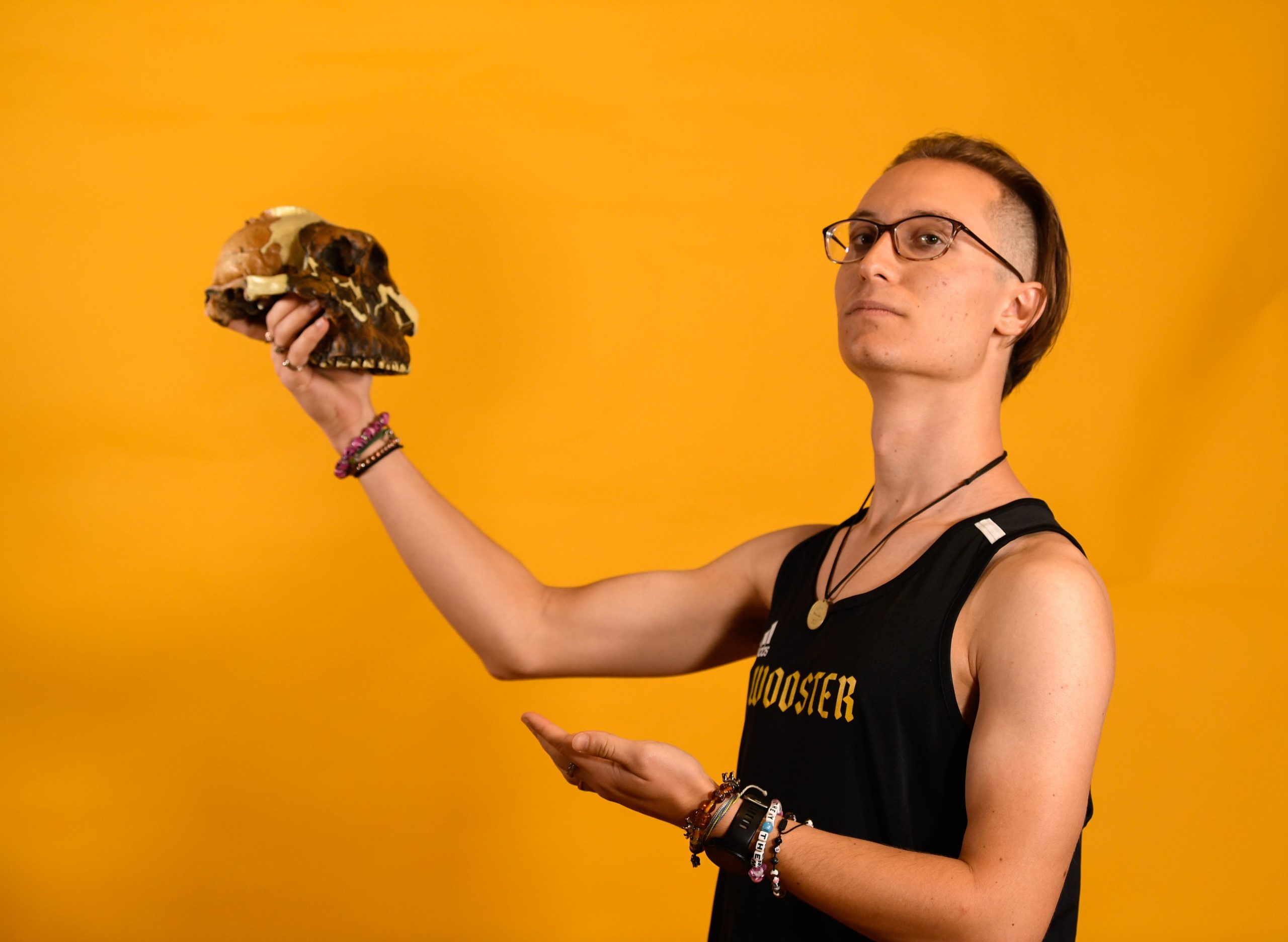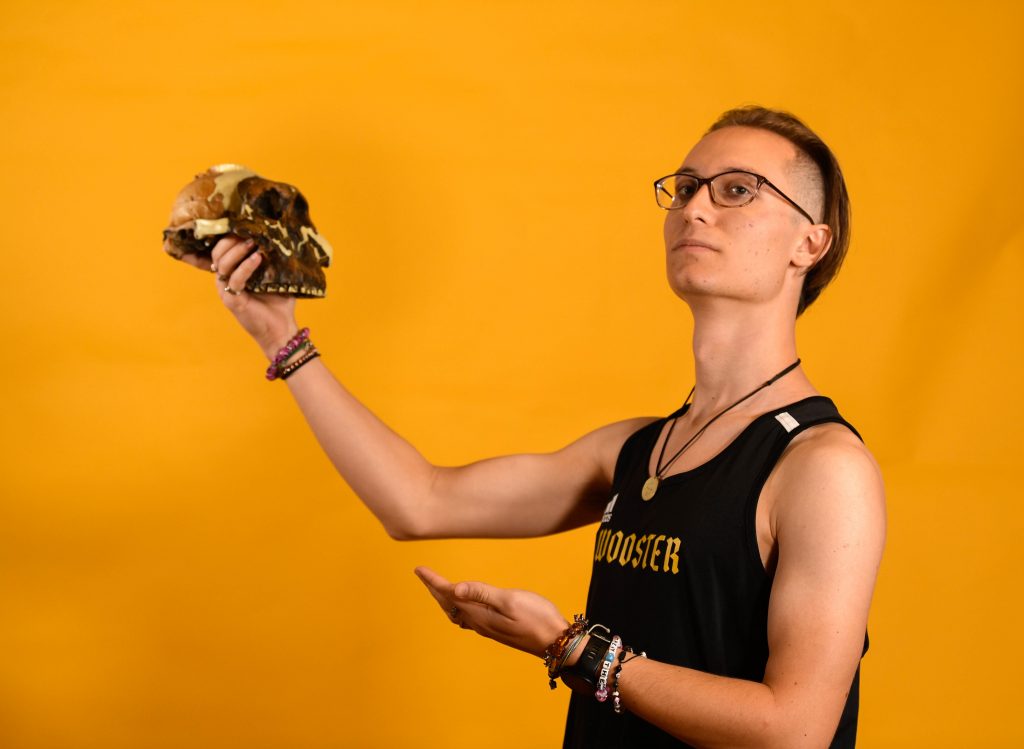
By: Atlas Dwyer ’24 | Contributing Writer
Michalis “Proto” Protopapadakis ’25, an archaeology and environmental geoscience double major, is combining their two majors into an Independent Study (I.S.), tentatively titled “An Osteological Investigation of the Middle Bronze Age Archaeological Pella Site in Jordan.” Protopapadakis is using the Pella Collection at The College of Wooster to collect data on one of its samples of human remains in order to find more information on the Pella Collection as a whole and to gather more data on the skeletal remains and their origin.
The Pella Collection is an archaeological collection housed in the Ebert Art Center at the College. It was excavated from the 1960s-1980s in Jordan and is now mostly managed by Ebert’s director and curator, professor Marianne Wardle and Beth Derderian, assistant professor of anthropology and museum studies. Wardle and Derdarian are currently working on cataloging, digitizing and publicizing the artifacts in the Pella Collection.
Protopapadakis decided to do a joint I.S. because they found “valuable information from both approaches.” An archaeological and geological investigation of the artifacts can help “put the [Pella] collection into perspective with the world,” Protopapadakis said.“We can analyze the bones themselves and that can tell us a lot, but by doing paleoclimate analysis as well, we can put both the civilization and the individuals in context with the world around them.”
The subject’s human remains were excavated from under the West Church in Jordan, thought to be from the Bronze Age because pottery from that period was found with the remains. Through osteological analysis of the remains’ dental records, Protopapadakis hopes to uncover answers regarding the human subject’s diet, environment and other factors of their life in the Bronze Age.
Protopapadakis is also reconstructing the climate around this period. They believe pairing archeological and geological approaches will allow them to investigate whether the human remains show biological changes resulting from climatic events such as weather-based agricultural changes or catastrophic climate events like earthquakes. The results are still preliminary, but Protopapadakis plans to conduct further testing to strengthen proposed correlations between the remains’ biological markers and paleoclimate data results.
Protopapadakis tackled this thesis using their experience from prior opportunities exploring archaeology and geology, working in the College’s dendrochronology lab, participating in an archaeological survey and excavation of a site in Greece, and attending a field school in South Africa with a team from Washington University in St. Louis. There, Protopapadakis developed skills in field work, remains analysis and excavation.
“I attended lectures by a bunch of experts in the field, and I used APEX funding to do that as well,” Protopapadakis remarked. They hope to use any potential Copeland funding for their I.S. to continue their research.
Proto also highlighted the role of Wooster’s on campus resources in developing their understanding of their topics of interest. Courses covering topics like zoology, biological anthropology, hydrology and paleoclimate have proved invaluable to Protopapadakis’ studies. They also value the guidance and leadership from their Wooster professors and advisors.
“I am really happy with my advisors,” Protopapadakis said. “It’s been a really good experience and I’m really thankful to both of them for offering resources and spending a lot of one-on-one time with me working on [my I.S.].”
Protopapadakis also wants to recognize the humanity of their subjects. “I am bringing attention to human remains that have not been published to the extent they should have been,” Protopapadakis said. “I feel like it’s very meaningful work to feel like I am contributing as much as I can to bring the stories of these people to the surface, and teach the world more about the wonderful nature of bioarchaeology, and archaeology in general.”
Protopapadakis’ favorite piece of the Pella Collection is “one individual who is… a set of Byzantine remains that were excavated by Wooster in 1967,” Protopapadakis said. “As someone who’s Greek, looking at someone who was potentially of that same culture who spoke Greek as well, and being able to analyze [remains] like that, who has also never been analyzed before to a great extent is really meaningful, both on an academic and personal level.”
Protopapadakis hopes to continue their Independent Study research into graduate school and further their investigation of the relationship between anthropological changes in the fossil record and potential factors like diet or locomotion.

Photo courtesy of Wooster Athletics
